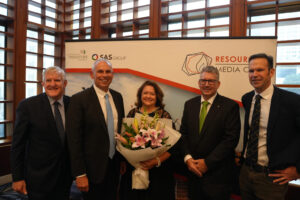
Too much fiscal intervention will make miners wary
Resources companies aren’t doing Australia a favour by investing in the country, they’re doing it because there’s money to be made, even with an increasing government take. But the danger for governments with a propensity to fiddle with industry tax regimes is overestimating their willingness to pay. It’s easily overlooked when company bosses warn that changes to Australia’s fiscal regime will force investment capital offshore and make other jurisdictions more attractive that the country still has a lot going for it.

WA toppled as world’s most attractive mining province
Western Australia has been toppled as the world’s top-rated mining investment destination but remains Australia’s most attractive jurisdiction. The Institute ranks the attractiveness of the world’s mining jurisdictions by measuring their practices, mineral potential and regulatory and fiscal policies based on a poll sent to nearly 2000 people in the mining industry. WA’s drop was blamed on a drop in its policy score, which shunted it from 4th to 10th last year, as miners “expressed increased concern over its taxation regime, uncertainty regarding environmental regulations and regulatory duplication and inconsistencies”, the Fraser Institute report said.
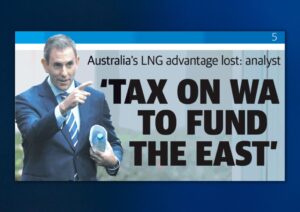
‘TAX ON WA TO FUND THE EAST’
One of Australia’s leading energy analysts says the Federal Government’s changes to the Petroleum Resource Rent Tax means the nation has “lost its competitive advantage” in the lucrative LNG sector.Mr Kavonic warned the changes could lead to the gas industry — already reconsidering Australian investment after east coast policy intervention — thinking twice about the west coast now, too.
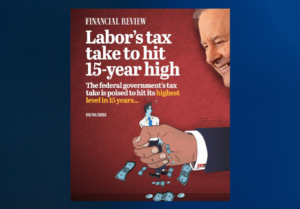
Labor’s tax take to hit 15-year high
The federal government’s tax take is poised to hit its highest level in 15 years thanks to soaring resource sector profits and inflation pushing workers into higher tax brackets. Veteran budget watcher Chris Richardson expects the May 9 budget to reveal tax revenue as a share of the economy will reach 23.8 per cent next financial year, which will be the highest level of collections since 2008.

Playing the Game
Get them young and maybe you’ll get them for life — that appears to be Gina Rinehart’s latest play to shore up an appreciation of mining. The billionaire has unveiled a novel counter to the shrill opposition against the industry, launching a kids app to massage the notion that resources are not only necessary to sustain modern living, but they also offer a fabulous career. Margin Call downloaded the game – Roy Hill Mine Tales – and attempted its basic challenges: dynamite was laid, ore was loaded onto a truck, the minerals were crushed, washed with a hose, and, in a final boss challenge, they had to be sucked up and directed into the hull of a barge, probably destined for China.“All I would say is those kids might have a bright future working for the best mining company in Australia, the biggest prize of all.”

News Australians are ready, willing, and able to work – let them!
Currently, only 3 per cent of pensioners work in Australia, compared to 25 per cent in New Zealand. This is not because pensioners in Australia do not want to work. Research has shown that around one in five want to work, but do not, because of unfair tax and red tape barriers.The solution is to follow New Zealand’s approach by removing all red tape on pensioners, students, and veterans. This would mean that these Australians could earn as much income as they would want, without losing their pension payments or welfare benefits. Of course, they would still pay income tax like every other Australian worker. Removing all red-tape and barriers for Australian pensioners, veterans, and students to get back into the workforce, without suffering significant financial penalties, is a simple and effective policy measure that is good for them and good for our nation. More Australians working means higher government revenue through income tax, GST, and payroll tax, which can be reinvested into infrastructure and used to pay down our debt.
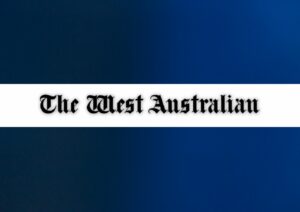
‘Intervention’ risks boom
“At a time when we need more investment to unlock the nation’s vast critical minerals potential, Australia’s investment environment is deteriorating at speed. You cannot keep throwing punches at Australian businesses and expect to maintain the same level of economic growth and job creation,” Ms Constable said in an opinion piece ahead of an appearance at Seven West Media’s Resources Technology Showcase.

Boom is ‘not our birthright’
This new mining boom is not our birthright. A steady stream of excessive interventions by governments have put Australia’s chances of reaping an incredible, long-lasting dividend from this new mining boom at genuine risk. These include heavy-handed industrial relations laws that impinge on productivity and threaten jobs. There is a genuine risk of Australia’s critical minerals remaining in the ground, as companies and investors prioritise foreign resources developments where costs are lower, policy settings more stable, and returns are higher. We need to seize the opportunity and not squander it. Because when Australian mining does well, Australians do well.
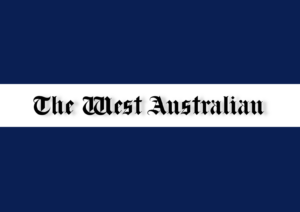
We cannot let opportunity ‘pack its bags’
Commentary by WAN Editor-in-Chief Anthony De Ceglie courtesy of the West Australian.

FIKILE MAJOLA: New approach to development of special economic zones
The literature is replete with case studies that illuminate how special economic zones (SEZs) have been instrumental in catalysing industrial development. It also holds great appeal in a country’s quest to crowd-in private sector investment through both domestic and foreign direct investment flows. SEZs have become an important policy tool of choice for governments seeking to accelerate industrialisation, development and growth.

